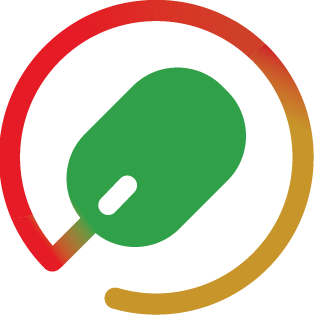By Tope Ogundipe
It is no longer news that the AU Summit held in Kigali in January 2018 has officially adopted the African Union Declaration on Internet Governance. It is not even exactly newsworthy either that the declaration makes some remarkable commitments regarding global concerns for cybersecurity, human rights and freedom of expression. It is expected. What is ironic is this; Heads of State and Government of the African Union… Reaffirming our commitment to the need for stability, for the safety of citizens and enterprises, confidentiality of online data security, through the AU Convention on Cybersecurity and Personal Data Protection, and taking into account the scalability of Africa’s Internet infrastructure…”
How does it happen that heads of state are able to reaffirm a convention that they have not even ratified? The African Union Convention on Cyber Security and Personal Data Protection aims to oblige member states to establish legal frameworks to strengthen the protection of rights related to data and sanction violations of the right to privacy. It was adopted in June 2014 but it is yet to come into force 4 years on because it has not been ratified by even a single member state. Article 36 of the Convention provides that the Convention will come into force 30 days following the deposit of the 15th instrument of ratification to the Chair of the African Union Commission. Only 8 states have signed the treaty; Benin, Chad, Djibouti, Guinea Bissau, Mauritania, Sierra Leone, Sao Tome and Principe and Zambia. But this does not mean several more are not developing laws and standards around electronic transactions, data protection, and cybersecurity. A worrisome trend in the development and adoption of such legislation, however, has been the potential, maybe even the intent in other cases to violate human rights, especially related to freedom of expression, right to privacy and access to information.
Beginning with the Arab spring, the power of the internet to mobilize social activism, especially using the social media, has been demonstrated time and again in Africa. Governments have been responding since then with extreme measures to control the internet. One way this is being achieved is through repressive laws. A Tanzanian data law deals a heavy blow on freedom of expression and access to information, containing a stiff penalty for anyone who publishes data or statistics outside publications by the Tanzania National Bureau of Statistics. Egypt’s 2015 Counter-Terrorism law (Article 29) allows sentencing of up to 10 years in prison for creating a social media account that promotes ‘terrorist’ activities or ‘harms national interests.’ Again, under its Telecommunication Regulation law, Internet Service Providers must give full access to all the equipment and software needed for the Armed Forces and national security agencies to exercise their power.
In Nigeria, the Draft Lawful Interception of Communications Regulation by the telecommunications regulator, Nigerian Communications Commission (NCC), provides the authorities unconstitutional access to invade citizens’ privacy. Sections 24 of Cybercrimes Act 2015 provides for state regulation and management of the social media and seeks to erode the principles of freedom of expression online in Nigeria. In addition to these, two dangerous bills, both tagged ‘The Hates Speech Bill’ with serious implications for freedom of expression, one of them carrying a death penalty for offenders are currently being considered by the Nigerian parliament. Act n° 013-2002 of 16 October 2002 has been the primary legal instrument against digital rights in Congo DRC, conferring on government powers to take over control of telecommunications facilities in the interest of national security or public defence. These are only a few examples, but they offer an insight all the same for the emerging patterns of digital rights violations sweeping through the continent such as internet shutdowns, state-sponsored surveillance, and arrest and detention of journalists, bloggers, and online activists and users.
The AU declaration on internet governance or anything else is not legally binding. It does not compel governments to take actions. All the same, it is an aspirational human rights instrument that explicitly encourages respect for freedoms and rights on the internet. By recalling the commitment of Member States to promote and protect fundamental freedoms especially the right to freedom of expression and access to information (on and offline), the declaration offers a hearty hope as a recognized standard on digital rights for the African people.
The declaration offers a chance for inspiring stakeholders, particularly African heads of states and governments to embrace the principles it contains in the exercise of their responsibilities in policy-making. The Declaration can also be used as an instrument to discuss, interpret and resolve matters relating to digital rights. The Declaration recalls the commitment of Member States to uphold human and peoples’ rights enunciated in instruments of the African Union and of the United Nations, recognizing that rights are rights and must be upheld and protected, online and offline. The declaration recognizes the concerns raised by allegations of mass surveillance and violations of the right to privacy in the digital environment and reaffirms the commitments made in UN General Assembly resolutions to respect and protect the right to privacy, including in the context of digital communication.
Of numerous human rights instruments which exists, this AU declaration is one of those which clearly lays out the digital rights of Africans. The Declaration can be useful for negotiation and mutual understanding about the online rights and freedoms of the African people. Whether or not it would fulfil this noble mission as a standard to be pursued on the continent in a spirit of partnership with all stakeholders, or it would be yet another missed opportunity for the advancement of human rights on the continent is yet to be seen.
Ogundipe, a digital rights advocate, is Paradigm Initiative’s Director of Programs.


